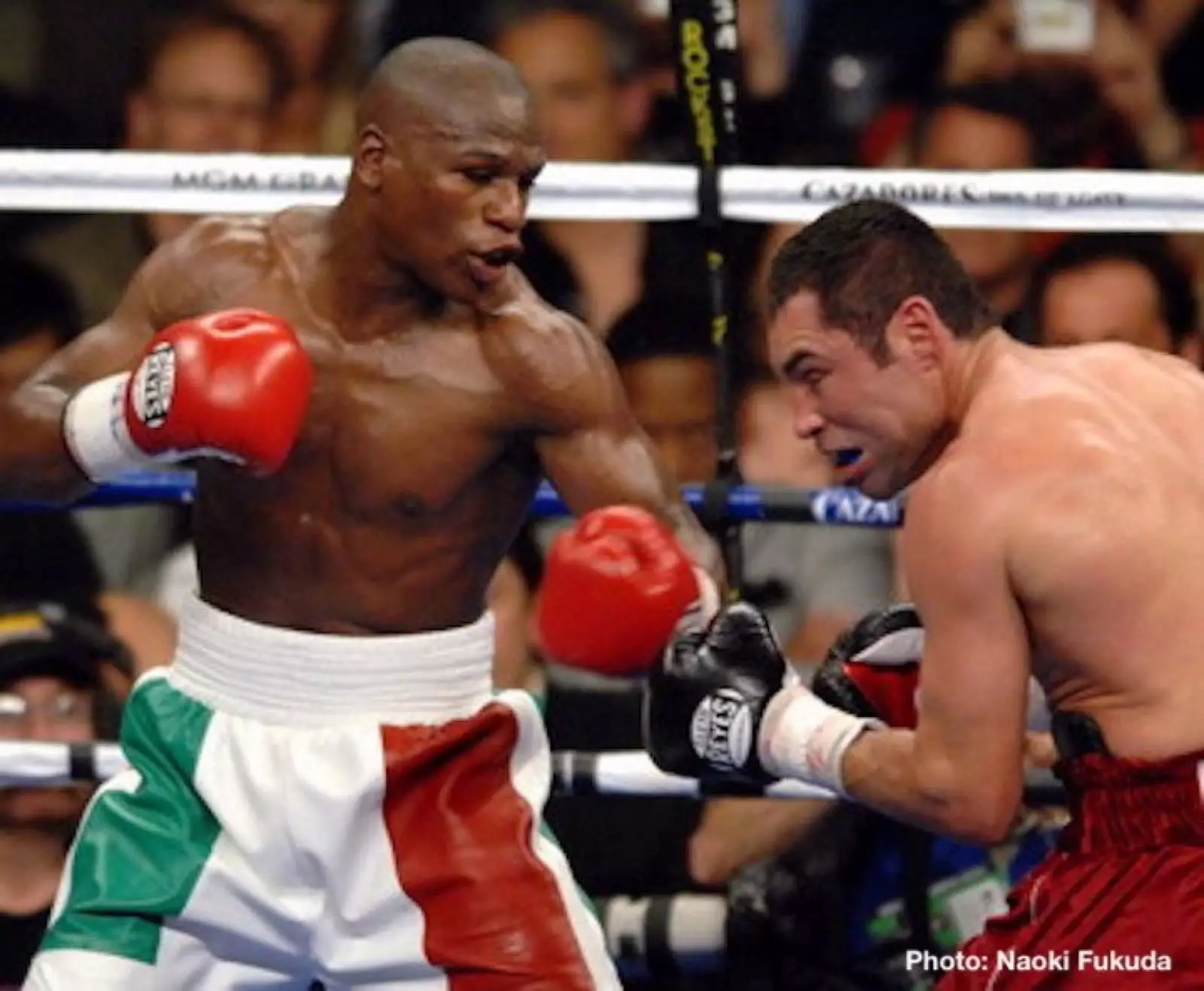The role of a trainer in a fighter’s corner cannot be understated. Throughout the history of boxing, we have seen numerous examples of how a great trainer can have a significant impact on the outcome of a fight. Fighters like Muhammad Ali and Michael Moorer had trainers who played crucial roles in their victories. Angelo Dundee and Teddy Atlas were instrumental in guiding their fighters to success in the ring. On the other hand, having the wrong trainer can lead to missed opportunities and defeats, as was the case with Oscar De La Hoya in his super fight against Floyd Mayweather.
During a recent interview on the Club Shay Shay podcast, Oscar De La Hoya expressed regret over not having Floyd Mayweather Senior in his corner for his fight against Floyd Mayweather Jr. De La Hoya believed that if he had Mayweather Senior by his side, he would have been able to secure a knockout victory. Despite having a successful partnership with Mayweather Jr. in the past, De La Hoya felt that a change in his corner could have made all the difference in the outcome of the fight.
One of the key factors that De La Hoya highlighted was the importance of utilizing his jab effectively. He admitted that his jab failed him during the fight, which ultimately led to his downfall. Whether it was due to fatigue or a lack of belief in his own abilities, De La Hoya’s failure to maintain his jab proved to be a critical mistake. This is where having a trainer like Mayweather Senior could have provided the guidance and motivation needed to turn the tide in De La Hoya’s favor.
While it is impossible to say for certain how the fight would have played out with Mayweather Senior in De La Hoya’s corner, it raises an interesting question about the impact of a trainer on a fighter’s performance. Would Mayweather Senior have been able to push De La Hoya to dig deeper and find the strength to secure a knockout victory? Could a different strategy or approach have been implemented to overcome Mayweather Jr.’s defensive prowess?
In hindsight, it is easy to speculate about what could have been if different decisions had been made. Freddie Roach, who was in De La Hoya’s corner for the fight, admitted that he wished he had taken more drastic measures to motivate his fighter during the later rounds. Roach’s hesitation to push De La Hoya further highlights the delicate balance between strategy and motivation in a high-stakes fight. The missed opportunity to make a significant change in De La Hoya’s approach could have altered the course of the fight entirely.
Ultimately, the relationship between a trainer and a fighter is a complex and dynamic one. The success or failure of a fighter in the ring can be greatly influenced by the guidance and support provided by their trainer. While it is impossible to say definitively whether Mayweather Senior could have led De La Hoya to victory, the speculation serves as a reminder of the critical role that trainers play in a fighter’s career. As De La Hoya reflected on his missed opportunity, it raises important questions about the dynamics of trainer-fighter relationships and the impact they can have on a fighter’s performance.

